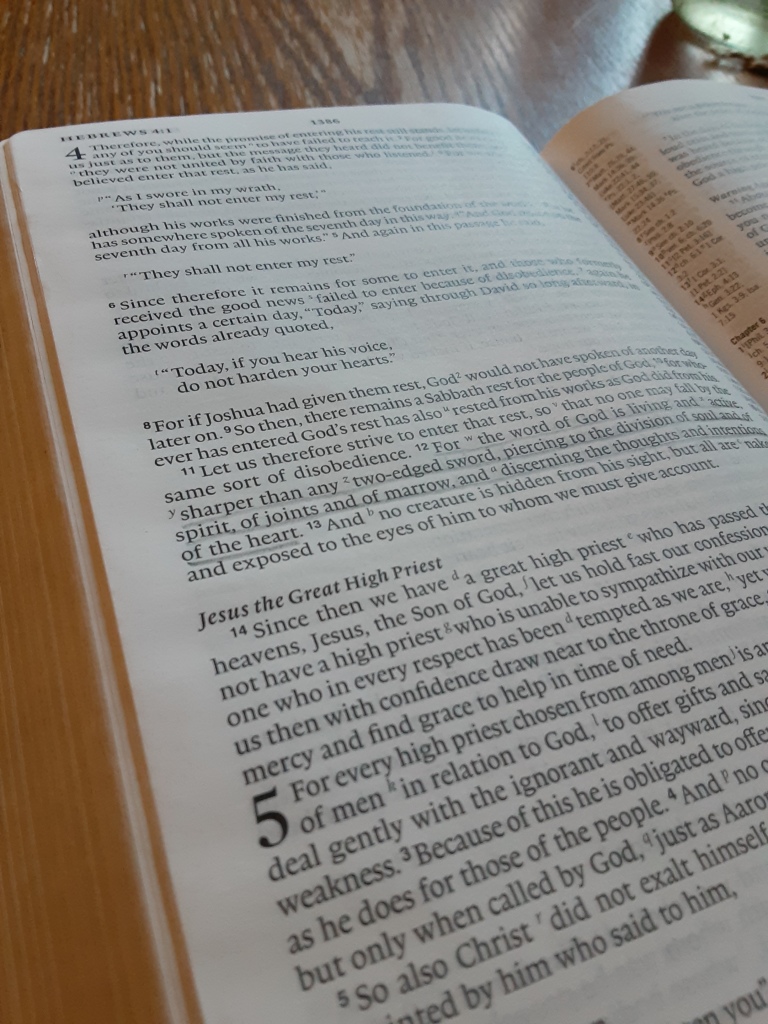I cried the day I found out Caleb didn’t believe in the perseverance of the saints. It was the end of January of 2019, and our phone calls were becoming more regular. We had enjoyed long talks about Scripture, salvation by grace alone through faith alone, and other theological common ground. Just recently, our conversations had to started moving more in the direction of the Sacraments. I had been devouring the resources Caleb shared on the Lutheran doctrine of Baptism (including these videos by Pastor Wolfmueller and Dr. Cooper) until it dawned on me, If Baptism saves, what does that mean for all the people who are baptized but later reject Christianity? And that’s when Caleb clarified: he believed in the possibility of apostasy.
The doctrine of Baptism had been fun to explore; the doctrine of apostasy was terrifying. I’m reminded of how different the experiences felt when I look back at our old messages following those conversations. About Baptism I said, “… thank you for the videos! I just watched them and found them very interesting. It’s a lot to take in and sort through, but I don’t mind having more questions to chew on. :)” The day after we broached the topic of perseverance and apostasy, I sent this message:
“Since our conversation, I’ve had some time to process more of my thoughts on the perseverance of the saints and why I love this doctrine so much. I lived until I was about 12 in fear that I might do something to undo what God had done. And now that I’ve come to believe that God’s mighty arms are protecting me from myself (as well as the world and the devil), it’s hard to imagine letting go of this doctrine. Could you remind me what the key texts are that make you believe in the possibility of apostasy? I want to examine my beliefs in the light of Scripture and to be aware of how my emotional attachment to this doctrine may cloud the way I initially read texts.”
That message sounds a lot calmer than how I felt. I was so confused, unsure whether I was more upset at the prospect of losing a beloved doctrine or of losing Caleb. I hated the idea of going back to the fear and legalism that characterized my earliest understanding of Christianity, and I hated the idea of our relationship not working out. And so, as the thoughts and feelings didn’t make much sense in prose, I wrote a poem.
This is not a poem about perseverance and apostasy, nor is it necessarily a poem about theological change. At a deeper level, it’s a prayer for courage: courage to take God at His Word and go wherever Scripture goes. Sometimes courage means changing our beliefs. Sometimes it means standing firmly on what we have believed all along, even when there is pressure to conform to the views of those around us. And sometimes courage just means listening to those who differ and being willing to ask hard questions.
It’s also a poem about the goodness of the Word. I’m not sure how I would have made it through all the uncertainties of a change in denominations if I had not known that the God who gave us His holy Word is a loving Father. Even when I didn’t know what to believe, I could take comfort in the the knowledge that if God’s Word taught something other than perseverance of the saints, what it taught must be better. This goes for all our doctrines: either they are true, or the truth is something even greater. His Word is perfect, and He withholds no good thing from us (Ps. 19:7; Rom. 8:32).
[Update: Click here to listen to the poem.]

Before a Sword
Free me, Father, from this fear of finding I’ve been wrong.
When what You say takes my breath away, please breathe in me a song.
Whenever I find this feeble mind can’t understand Your ways,
Please gather up my frustrations and convert them into praise.
I know I’ll never comprehend all thoughts higher than mine;
I only ask You to remove whatever toward error inclines.
I only ask You to reveal as much as I can bear.
Your glory, Lord, would shatter me if I saw all that’s there.
I want to know You rightly, God, as any daughter would.
I want the truth, even if it hurts; Your truth is always good.
So let Your Sword come do its work upon this daughter’s heart.
I trust the One who wields His Word His healing to impart.
Though You should cut and amputate the thoughts I hold so dear,
I know that these are wounds of love; I have no cause to fear.
I want to hear your stories! Have you ever been afraid to ask hard questions and dig into God’s Word? How has He taught you to trust Him in those times?